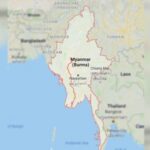MANILA — The Department of Agriculture (DA), through its Agribusiness and Marketing Assistance Service (AMAS), launched a two-day forum aimed at encouraging Overseas Filipino Workers (OFWs) in Hong Kong and Macau to explore agribusiness opportunities as a reintegration strategy.
The DA held the «Usapang Agribiz: Agribusiness Opportunities Forum in the Philippines» on June 28 in Macau and June 29 in Hong Kong, attracting a total of 214 participants—87 in Macau and 127 in Hong Kong.
This initiative is part of President Ferdinand R. Marcos Jr.’s broader strategy to advance agriculture and recognize OFWs not only as economic contributors but also as future drivers of food security and rural progress.
According to a press release, the event was conducted in partnership with the Office of the Agricultural Counselor in China and the Department of Migrant Workers (DMW).
The forum aimed to assist OFWs in transitioning to agribusiness by providing information on agricultural investment opportunities, funding programs, technical training, and success stories of returning Filipinos who have thrived in agribusiness.
Assistant Secretary for Agribusiness, Marketing, and Consumer Affairs led the Philippine delegation.
She emphasized the government’s commitment to empowering OFWs as contributors to rural development and food security.
«Your hard work, remittances, and resilience keep our economy afloat. Now, by venturing into agribusiness, you are taking the next bold step—not only securing your future but also contributing to food security, rural development, and our nation’s economic resilience,» she said.
The Philippine Ambassador to China also expressed support for the initiative, highlighting the importance of investing in agricultural enterprises.
«It’s important to earn and save, but what matters most is growing our savings. Why go into agribusiness? The Philippines remains an agricultural country,» he said.
Speakers at the forum included representatives from various DA agencies and successful agripreneurs. Former OFWs shared how they transformed their savings into profitable agribusiness ventures with government support.
Participants were also informed about sector-specific opportunities. A representative from the Bureau of Animal Industry discussed livestock and poultry enterprises, while a representative from the High-Value Crops Development Program highlighted the potential of fruit and vegetable production.
The Director of the Agricultural Training Institute presented available training programs, and a representative from the Agricultural Credit Policy Council outlined financing options for agripreneurs.
A representative from the Philippine Crop Insurance Corporation discussed risk mitigation through insurance.
DA-AMAS stated it would continue providing technical assistance, mentorship, and market access to OFWs interested in establishing their own agricultural enterprises.
Hong Kong is home to over 138,000 OFWs, while Macau has more than 26,000. These locations were chosen due to their strong Filipino communities and potential for successful reintegration programs.
Department of Agriculture (DA)
The **Department of Agriculture (DA)** is a government agency responsible for developing and implementing policies, programs, and projects to ensure food security, sustainable farming, and rural development. Established in many countries, such as the **Philippines (founded in 1898)** and the **United States (founded in 1862)**, the DA supports farmers, regulates agricultural industries, and promotes agricultural research and innovation. Its history often reflects efforts to modernize farming, combat food shortages, and boost economic growth in rural areas.
Agribusiness and Marketing Assistance Service (AMAS)
The **Agribusiness and Marketing Assistance Service (AMAS)** is a Philippine government agency under the Department of Agriculture, established to support farmers and agri-entrepreneurs by improving market access, enhancing product competitiveness, and providing business development services. It plays a key role in linking agricultural producers to markets, promoting value-added products, and facilitating agribusiness training and financing. AMAS contributes to rural economic growth by bridging the gap between farming communities and commercial opportunities.
Office of the Agricultural Counselor in China
The Office of the Agricultural Counselor in China is a diplomatic mission that facilitates agricultural cooperation between China and other countries. It promotes trade, technology exchange, and policy dialogue in agriculture, livestock, and related sectors. Established as part of bilateral relations, it supports mutual development and addresses global food security challenges.
Department of Migrant Workers (DMW)
The **Department of Migrant Workers (DMW)** is a Philippine government agency established in 2022 to protect the rights and welfare of overseas Filipino workers (OFWs). It consolidates services previously handled by multiple agencies, streamlining processes like employment contracts, legal assistance, and reintegration programs. The DMW reflects the Philippines’ commitment to supporting its millions of migrant workers, a vital part of the nation’s economy and culture.
Bureau of Animal Industry
The **Bureau of Animal Industry (BAI)** was established in the United States in 1884 under the Department of Agriculture to combat livestock diseases, improve animal health, and regulate meat inspection. It played a key role in eradicating diseases like Texas cattle fever and laid the foundation for modern food safety laws, including the Meat Inspection Act of 1906. Today, its functions are largely carried out by agencies like the USDA’s Animal and Plant Health Inspection Service (APHIS).
High-Value Crops Development Program
The **High-Value Crops Development Program (HVCDP)** is an agricultural initiative, often implemented in countries like the Philippines, aimed at promoting the cultivation of profitable, non-traditional crops such as fruits, vegetables, and spices to boost farmers’ incomes. Established to diversify farming beyond staple crops, it supports farmers with training, technology, and market access to enhance productivity and profitability. The program helps improve rural livelihoods while contributing to food security and sustainable agriculture.
Agricultural Training Institute
The Agricultural Training Institute (ATI) is a government agency typically focused on providing education, training, and extension services to farmers and agricultural stakeholders. Established to enhance agricultural productivity and sustainability, it often offers programs on modern farming techniques, agribusiness, and rural development. Its history varies by country, but many such institutes were founded in the mid-to-late 20th century to support agricultural modernization and food security efforts.
Agricultural Credit Policy Council
The **Agricultural Credit Policy Council (ACPC)** is a Philippine government agency established in 1986 to design and implement credit policies and programs supporting farmers and fisherfolk. It aims to improve access to financial services, enhance agricultural productivity, and promote rural development. The ACPC works with banks, cooperatives, and other institutions to provide affordable credit and strengthen the agricultural sector.






